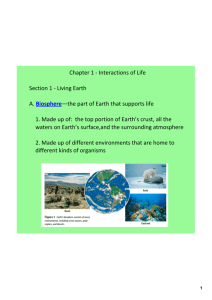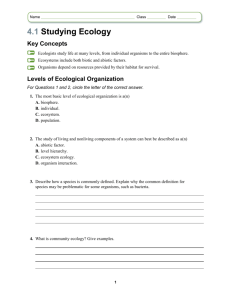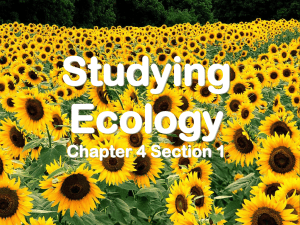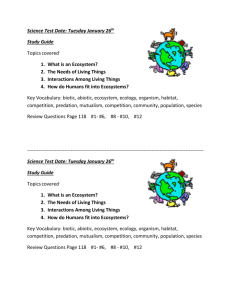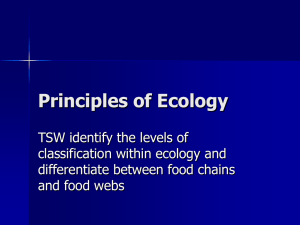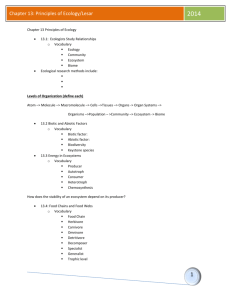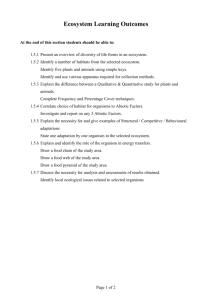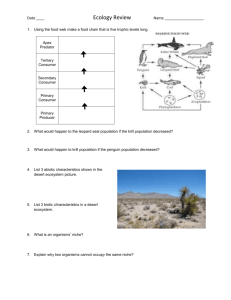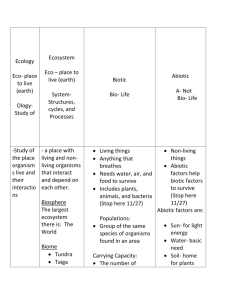Ecology
advertisement
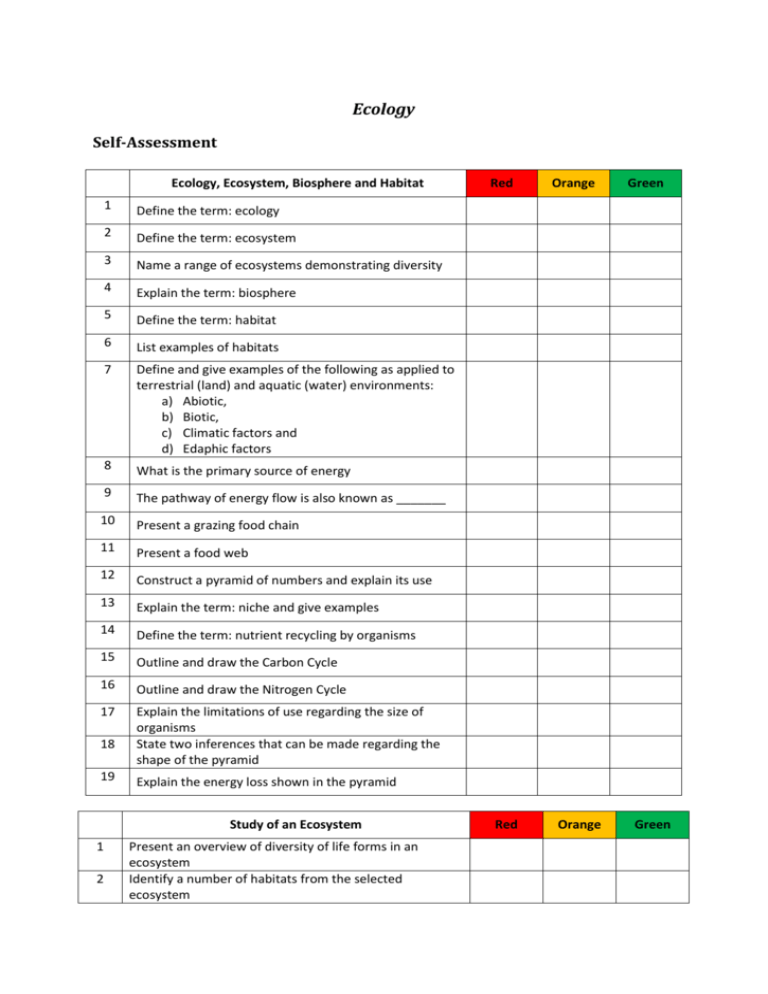
Ecology Self-Assessment Ecology, Ecosystem, Biosphere and Habitat 1 Define the term: ecology 2 Define the term: ecosystem 3 Name a range of ecosystems demonstrating diversity 4 Explain the term: biosphere 5 Define the term: habitat 6 List examples of habitats 7 Define and give examples of the following as applied to terrestrial (land) and aquatic (water) environments: a) Abiotic, b) Biotic, c) Climatic factors and d) Edaphic factors 8 What is the primary source of energy 9 The pathway of energy flow is also known as _______ 10 Present a grazing food chain 11 Present a food web 12 Construct a pyramid of numbers and explain its use 13 Explain the term: niche and give examples 14 Define the term: nutrient recycling by organisms 15 Outline and draw the Carbon Cycle 16 Outline and draw the Nitrogen Cycle 17 Explain the limitations of use regarding the size of organisms State two inferences that can be made regarding the shape of the pyramid 18 19 2 Orange Green Explain the energy loss shown in the pyramid Study of an Ecosystem 1 Red Present an overview of diversity of life forms in an ecosystem Identify a number of habitats from the selected ecosystem Red Orange Green 3 Identify five plants and animals using simple keys 4 Draw up keys for identification of organisms 5 Identify and use various apparatus required for collection methods Explain the difference between a Qualitative & Quantitative study for plants and animals Can you complete Frequency and Percentage Cover surveys Can you correlate choice of habitat for organisms to Abiotic Factors 6 7 8 9 Investigate and report on any 3 Abiotic Factors 10 Explain the necessity for and give examples of Structural/Competitive/Behavioural adaptations State one adaptation by one organism in the selected ecosystem Explain and identify the role of the organism in energy transfers 11 12 13 Draw a food chain of the study area 14 Draw a food web of the study area 15 Draw a food pyramid of the study area 16 Discuss the necessity for analysis and assessments of results obtained Identify local ecological issues related to selected organisms 17
